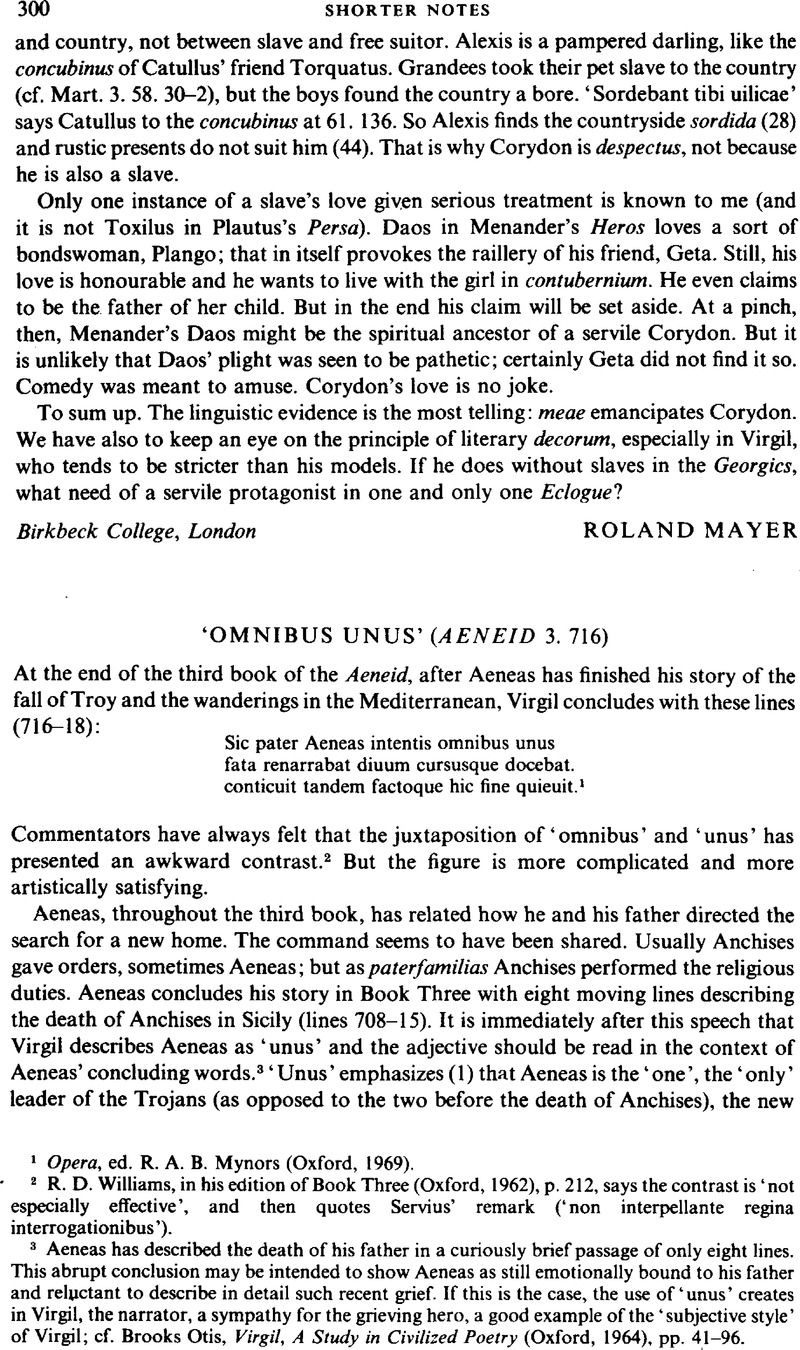No CrossRef data available.
Published online by Cambridge University Press: 11 February 2009

1 Opera, ed. Mynors, R. A. B. (Oxford, 1969)Google Scholar.
2 R. D. Williams, win his edition of Book Three (Oxford, 1962), p. 212, says the contrast is ‘not especially effective’, and then quotes Servius' remark (‘non interpellante regina interrogationibus’).
3 Aeneas has described the death of his father in a curiously brief passage of only eight lines. This abrupt conclusion may be intended to show Aeneas as still emotionally bound to his father and reluctant to describe in detail such recent grief. If this is the case, the use of ‘unus’ creates in Virgil, the narrator, a sympathy for the grieving hero, a good example of the ‘subjective style’ of Virgil; cf. Otis, Brooks, Virgil, A Study in Civilized Poetry (Oxford, 1964), pp. 41–96Google Scholar.
4 Aeneas is called pater Aeneas only after his father's death (with the exception of 3. 343, where Aeneas is pater only of Ascanius, not of his people). Before the death of Anchises, it is always pater Anchises, confirming Austin's, R. G. comment, Aeneidos Liber Secundus (Oxford, 1964), p. 28Google Scholar, that paler is not only ‘a term of respect but indicative of responsibility’.